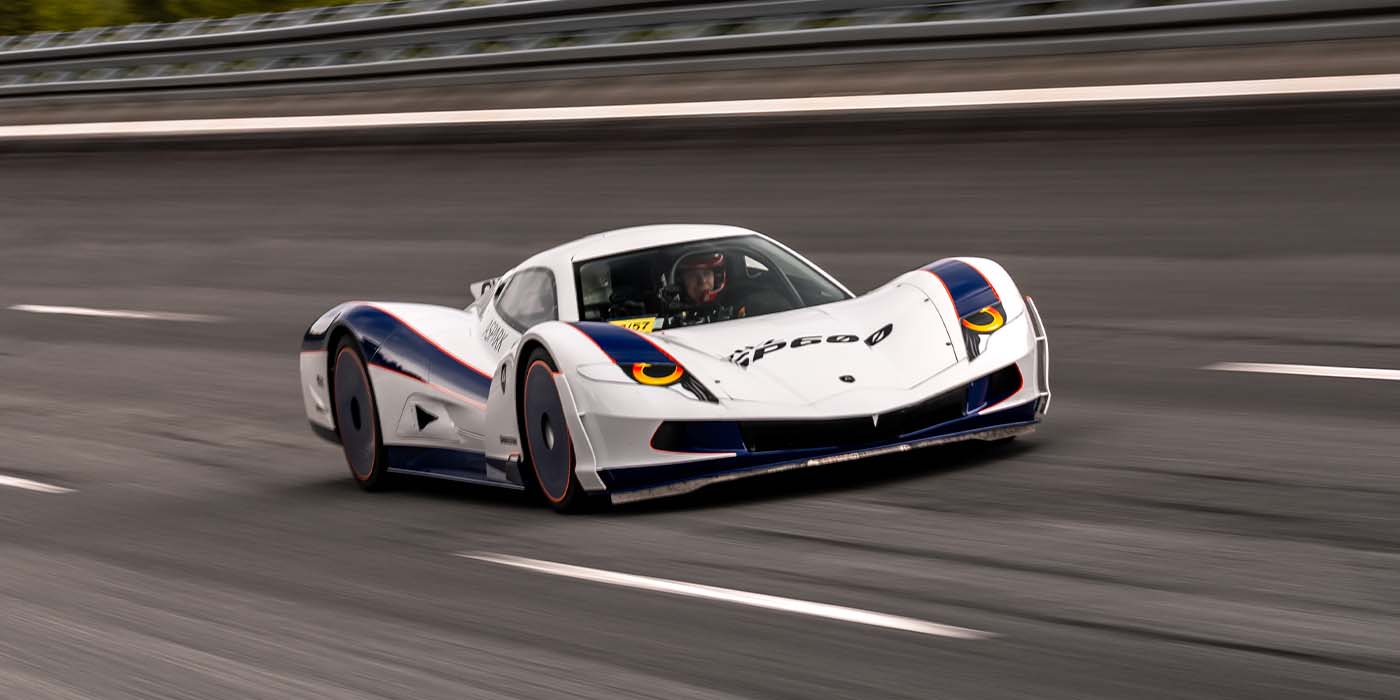
There’s a new “world’s fastest EV” in town, and it’s a familiar name if you follow Electrek. Japanese car manufacturing and engineering firm Aspark has developed an upgraded version of its ultrafast (and ultra-expensive) OWL hypercar with the help of Italy’s Manifattura Automobili Torino and took the EV to the track where it clocked in at a top speed of nearly 439 km/h.
Aspark is a vehicle engineering and design company founded in Osaka, Japan, nearly 20 years ago. During its run, much of its focus has surrounded one specific hypercar – the OWL. It would be thirteen years after Aspark was founded that it caught our eye, when it put a prototype of the OWL out on the track to try and beat the 0-100 km/h (0-62 mph) time of Tesla’s second-generation Roadster.
While we still await the arrival of a production-ready Tesla Roadster, the exclusive OWL hypercar has hit the market. It has held the title of the most expensive EV in the world (2.9 million euros each) for several years—at least until Automobili Pininfarina debuted its topless Barchetta EV for 4.4 million euros last summer.
Since beginning limited-run production in Italy, the original Aspark OWL can deliver a total output of 1,980 horsepower (1,456 kW), 1,920 Nm (1,416 ft-lb) of torque, and 250 miles (400 km) of range. We’ve seen the hypercar cruising around Europe, make its way to Japan, and this past March, begin sales in the US.
That version of the EV remains one of the world’s fastest, accelerating from 0 to 60 mph in 1.72 seconds and reaching a top speed of 260 mph (413 km/h). As a result, the OWL has already garnered two Guinness World Records in the UK: completing an eighth of a mile at an average speed of 192.03 mph (309.02 km/h) and a quarter mile at an average speed of 198.12 mph (318.85 km/h).
Today, Aspark has shared video footage of a new version called the OWL SP600, hailed as the world’s fastest EV after recently achieving a blistering top speed of 438.7 km/h or 272.6 mph.
The Aspark OWL SP600 becomes world’s fastest EV
To prove its new owl-eyed electric hypercar is, in fact, the fastest EV in the world, Aspark documented its day at the track alongside the team from its development and engineering partner Manifattura Automobili Torino (MAT), who built the commissioned vehicle in Italy.
The Japanese company describes the OWL SP600 as “an evolution of the original Aspark OWL,” complete with bespoke Potenza Race tires from Bridgestone. Leading up to the record-setting attempt, Aspark says it put the OWL SP600 through a specific campaign of wind tunnel validation activities and several days of track testing with professional driver and Nurburgring 24h winner Marc Basseng.
On June 8, 2024, the Aspark OWL SP600 achieved a top speed of nearly 439 km/h at Automotive Testing Papenburg (ATP) in Germany. It was validated using Racelogic V-Box, a high-precision GPS-based measurement device provided by the ATP.
Leading up to the attempt that certified it as the world’s fastest EV, Aspark says the OWL consistently top speeds of 420.8 km/h (261.6 mph), then 430 km/h (267 mph) before the final 438.7 km/h run. Aspark CEO Masanori Yoshida spoke about the record achievement in EVs:
It has been about 10 years since we started working on the OWL Hypercar. We aimed for the World’s fastest accelerating car, then attempted and achieved the top speed world records today with our new hypercar OWL SP600. This technical capability inspires all involved to personal excellence and to challenge and grow in leaps and bounds into the future.
You can watch footage of the record-setting day in MAT’s video below:
